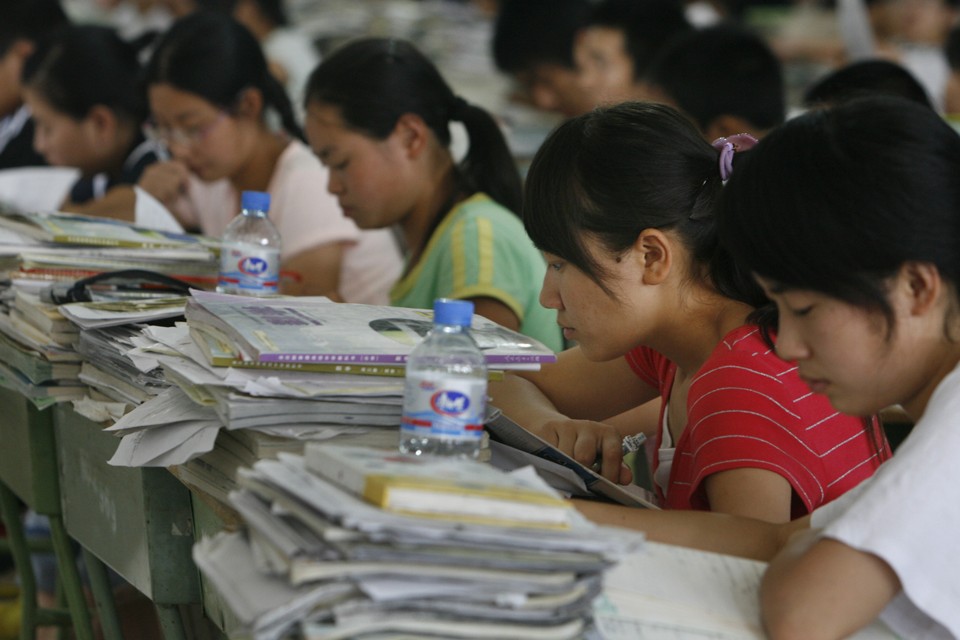The Burden of Being Asian American on Campus
The arrival of Chinese international students comes at a cost to some.

Students prepare for a college entrance exam in China's Sichuan province.Claro Cortes / Reuters
At that time, it was almost unheard of for Chinese students to go to the United States for undergraduate study. Instead, everyone suffered through the dreadedgaokao, the Chinese college-entrance examination. For four consecutive days in June, thousands of Chinese high schoolers sat in stuffy classrooms with no air conditioning, sweating and exerting themselves in subjects like mathematics, physics, and English to get one single score high enough to earn a coveted spot at a top university. Most students who did go abroad were graduate students, and many of them stayed in the new country.
The scene today is a little different. The majority of students in China do still take the exam. They study for years in preparation and wait for weeks afterward in anticipation of receiving a number that determines their future. Students are accepted to a college based on how highly they ranked the school and the single weighted score, which they may not even know before submitting their preferences. The convoluted and capricious ranking system may allot them a spot at their last-choice college.
Many, however, now have the option of bypassing that system, with exceptional talent or a significant amount of money. Some apply to a foreign-language school where students can apply to universities abroad instead of taking the gaokao. Others test their way into “experimental” classes at top public high schools, which are fiercely competitive but have high success rates of getting students into Western universities. Those with more disposable income can skip Chinese high school altogether and attend a private boarding school abroad, such as Andover or Exeter in New England. Students from wealthier families usually have a better chance of going abroad because they can hire tutors, take test-prep courses, and afford the high tuition of American private high schools and universities.
In recent years, the number of Chinese nationals studying abroad has increased dramatically, surpassing India, South Korea, and other countries in the number of students sent overseas. According to the Institute of International Education, China was the top sender of students to the United States in 2015, with 304,040 Chinese International Students Affect Asian American Students in Complicated Ways - The Atlantic:
